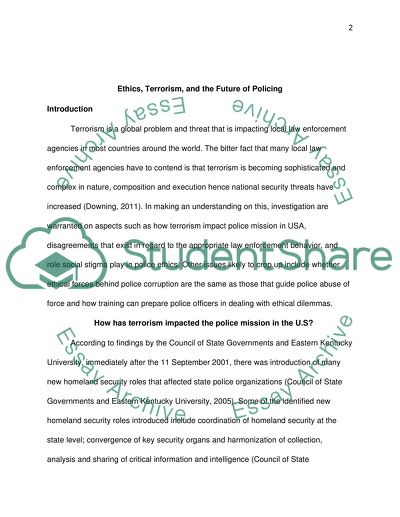Cite this document
(“Ethics, Terrorism, and the Future of Policing Essay”, n.d.)
Retrieved de https://studentshare.org/psychology/1391126-ethics-terrorism-and-the-future-of-policing
Retrieved de https://studentshare.org/psychology/1391126-ethics-terrorism-and-the-future-of-policing
(Ethics, Terrorism, and the Future of Policing Essay)
https://studentshare.org/psychology/1391126-ethics-terrorism-and-the-future-of-policing.
https://studentshare.org/psychology/1391126-ethics-terrorism-and-the-future-of-policing.
“Ethics, Terrorism, and the Future of Policing Essay”, n.d. https://studentshare.org/psychology/1391126-ethics-terrorism-and-the-future-of-policing.


